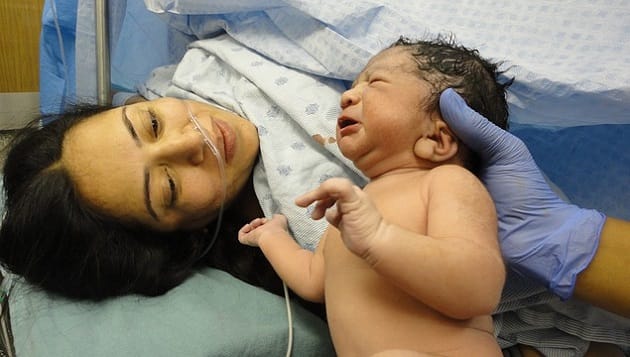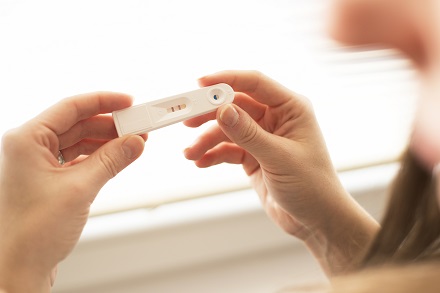 Experiencing preterm labor can be very painful and it is estimated that 15 million babies are born across the planet under this condition.
Experiencing preterm labor can be very painful and it is estimated that 15 million babies are born across the planet under this condition.
The sad thing is that most of the babies born under preterm labor are subject to infant mortality. Thus, pregnant women should know this to acquire timely medical intervention.
Preterm Labor
This condition occurs when the regular contractions would begin prior to the 37 weeks of pregnancy. These are then followed by a cervical dilation, which can be categorized according to the following.no
- Extremely preterm – occurs in less than 28 weeks
- Very preterm – occurs from 28 to 32 weeks
- Moderate to late preterm – occurs from 32 to 37 weeks
Causes Of Preterm Labor
You might be wondering about the causes of preterm labor, so here are top reasons why this condition occurs.
- Spontaneous preterm labor – this is the unplanned delivery before the 37th week of pregnancy. This could be triggered by an inflammation or infection.
- Medically indicated preterm labor – a medical condition like preeclampsia could be encountered in this condition. So, the doctor would recommend preterm delivery via induced labor.
- Non-medically indicated preterm labor – this is the condition in which labor has been induced or a C-section has been carried out. But without a medical emergency, this should not be carried out.
Preterm labor can occur at any time in which you may not be prepared for it. However, it is important that you know when you are at risk of this condition.
Women At Risk To Preterm Labor
- Those who are pregnant with multiples
- Those who have had previous premature births
- Those who have certain cervical or uterine abnormalities
Medical Risk Factors
- Infection with a fever higher than 101 degrees Fahrenheit during pregnancy
- Unexplained vaginal bleeding after being pregnant for 20 weeks
- Chronic illness like kidney disease, high blood pressure, or diabetes
- Underweight or overweight before being pregnant
- Clotting disorder or thrombophilia
- Being pregnant with one fetus after IVF or in vitro fertilization
- Recurring kidney or bladder infections
- Urinary tract infections, sexually transmitted infections, and vaginal infections.
Lifestyle Risks For Preterm Labor
- Smoking
- Drinking alcohol
- Illegal drug use
- Little or absence of prenatal care
- Domestic violence, such as emotional, physical, and sexual abuse
- High levels of stress
- Lack of social support
- Low income
- Long work hours with long periods attributed to standing
Symptoms of Preterm Labor
- 5 or more uterine contractions within just 1 hour
- Menstrual-like cramps at the lower abdomen that are constant or just come and go
- Dull, low backaches being felt under the waistline that is constant or just comes and goes
- Watery fluid leaking from the vagina, indicating that the water has broken
- Pelvic pressure like the pushing down of your baby
- Change or increase in vaginal discharge
- Abdominal cramps that would happen with or without diarrhea
Preventing Preterm Labor Naturally
Proper activities
- Gentle activities that would maintain muscle strength and power
- Exercise routines before pregnancy
- Go for a walk near the house usually after dinner
Keep Good Hygiene
There is increased excretion during late period pregnancy. So, a pregnant woman must pay attention to hygiene, to decrease the risk of urinary tract infections.
Take note that severe infections would cause early fetal membrane rupture, which result in preterm labor. Thus, 100% cotton panties should be used by pregnant women.
Multivitamin Capsule
Daily intake of multivitamin not only improves overall health but also reduce the rate of preterm birth. Pregnant women who can’t eat rich meals may take multivitamins to compensate for the deficiency.
Get Tested
Uterine infections may be able to develop at the lower genital tract. Thus, it is best to undergo certain tests so that you can avoid preterm labor.
Infections can trigger preterm birth, which can be caused by sexually transmitted diseases, such as chlamydia and gonorrhea. Nowadays, doctors are looking to determine the infections like bacterial vaginosis, causing unpleasant odor and gray discharge.
Visiting The Dentist
A lot of pregnant women often skip their visits to the dentist, but having regular cleanings can help avoid preterm labor. If you have dental conditions, you can experience the same events initiated by uterine infections.
Watch Your Weight
A total of 25 to 35 pounds can be put on by an average woman during pregnancy. If you gain too much, you can increase the chances of complications such as preeclampsia and gestational diabetes.
If you were heavy before you got pregnant, then you need to talk to your doctor about it. This is because it is recommended that obese and overweight women should gain less weight about 15 to 25 pounds only.
Eat Healthy And Exercise
You should already know that eating healthy foods can be very essential to the development of the baby inside your womb. Thus, you may have to take healthy sources of dairy and protein, whole-wheat carbs, and lots of vegetables and fruits.



